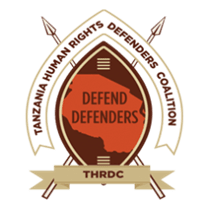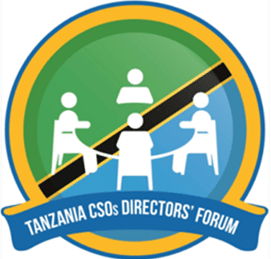OUR PROGRAMMES
Our Programmes
We, AREPEB, are a committed one-stop centre for peacebuilding, conflict transformation, the promotion of human rights and good governance, humanitarian activities, and a love for humanity. We believe these efforts contribute to economic growth at individual, group, and national levels. We also ensure that the administration and dispensation of justice, services, and goods in both public and private institutions are delivered in an environment free of corruption.
We work to halt the spread of conflict, provide humanitarian assistance to those affected by disasters, and advocate for peaceful co-existence. Our programmes reflect our organisation’s belief that peace is the most basic human right, and that peace and sustainable development are interdependent and indivisible.
OUR STRATEGIC PROGRAMMES
We, AREPEB, are an NGO that has strategic programmes that are focusing on strengthening capacity of communities and stakeholders. These programs include;
Peace Building
Peace and development are interdependent and indivisible. Throughout the world, intellectual and spiritual energies are dedicated to ending conflicts, suffering, and the devastation of war, which no nation is immune to. The first decade of the 21st century was the bloodiest in Africa, with many lives lost in violent conflicts, both internal and external. The value of goods destroyed and resources consumed in wars and preparations for war far exceeds any other area of activity in modern history.
At this point in time, conflicts, wars, and their consequences constitute the fundamental challenge to Africa and its people, as well as the world at large. Neglecting to seek new and effective approaches and solutions to the pervasive problems of wars and conflicts is to condemn African peoples to a perpetual life in wars that can only be endured, not solved.
Peace is not merely the absence of war and hatred (negative peace/cold war) but also the presence of cooperation, compassion, and worldwide justice (positive peace/hot peace). Although ‘peace’ is the usual translation, it is an incomplete one. The Hebrew word ‘shalom,’ which is also cognate with the Arabic ‘salaam,’ has multiple meanings in addition to peace, including justice, good health, safety, well-being, prosperity, equity, security, good fortune, and friendliness. At a personal level, peaceful behaviours are kind, considerate, respectful, just, and tolerant of others’ beliefs and behaviours, tending to manifest goodwill.
Peace is a vastly greater concept than the lack of war, violence, poverty, and inner turmoil. Peace is the combination of bodily peace, family peace, local peace, national peace, inner peace, and world peace. Accordingly, true peace must begin with food, water, nutrition, and healthcare for both rich and poor alike. Next, peace training starts with the family and in our education systems. Peace needs to surround us in the form of local safety and security, best achieved through communication and negotiation with neighbours to attain mutual trust and respect for one another. Governments and state leaders can assist in the peace process by creating and encouraging/enforcing moral and ethical standards, thus promoting justice, liberty, freedom, ethnic and religious tolerance, and constructive relations with all nations.
Conflict Transformation and Reconciliation
Conflict Transformation strategies refer to outcomes -, process – and structure-oriented long-term peace building effects. It aims to overcome the revealed forms of of direct, cultural and structural violence completely. Conflict Transformation not only moves beyond the aims of both Conflict Settlement and Conflict Resolution approaches, but also takes up many ideas of Conflict Resolution. Conflict Prevention refers to “not merely the conditions that create the environment of conflict and structural changes required to remove it, but more importantly, the promotion of conditions that create cooperative relationships.
The Conflict Resolution approach lacks the focus on dialogues and cooperation between actors of unequal status, the need to fulfill basic needs give rise to deep-rooted violence and hatred in the first instance.
The transformation approach intentionally keeps “the aftermath” of the conflict in focus, conflict resolution has the inclination to concentrate only upon the immediate and short-term. Conflict Resolution sees conflict as a phenomenon that is bad and as something that needs to be ended. The transformation approach asks that we recognize conflict and use it in a positive way that is to our advantage (Reimann, 2004; Mitchell, 2002 ; Spangler, 2003).
Preventing Violent Extremism (PVE) and Transforming It
Radicalization and violent extremism are not new to Africa, but have evolved over the last two decades in more significant ways. This is not just a reflection of jihadist groups’ recent inventiveness and adaptation, but the culmination of longer-term historical and global trends. It has continued to spread building both on economic decline, moral populism, international connectedness and classic vulnerabilities of the state. Indeed, it is among these variables that the deeper and enduring sources of violent extremism and its solutions can be located.
There are vast regions of Africa where regular state administration has been suspended or violently challenged, sometimes for long periods. Many parts of the continent continue to be attractive to international and local jihadist groups, which could become parasitic on local armed conflicts, seizing upon ideological dimensions to local grievances. As much as there has been an internal fertile ground for radicalization, the ideological roots and financial backing of violent extremist groups lie outside the region. To the extent that any policy on radicalization and violent extremism has meant that such problems are overlooked, it is unlikely to achieve its goals and there is a need for a more sophisticated and nuanced approach (UNDP Journey to Extremism in Africa Report, 2017). The 2015 United Nations Plan of Action on Preventing Violent Extremism urges the global community of states to pay closer attention to the root causes and drivers of violent extremism, after decades of overconcentration on militarized approaches.
Just as violent extremism profoundly impacts the attainment of development goals, so the search for solutions must also place development approaches at its centre. Still, the evidence base concerning the causes, consequences and trajectories informing violent extremism – and what works in preventing it – remains weak globally. This is particularly true in Africa when compared to other regions.
The UNDP Africa Journey to Extremism study represents a unique contribution towards creating precisely such an evidence base concerning the drivers and incentives.
AREPEB and other partners will have collective focus and efforts to stem and transform violent extremism in Tanzania, towards sustainable development and peace.
Organization Capacity Development
Capacity building and institutional development are key to human capital formation, mobilization, absorption and efficient use of resources, monitoring, validation of externally supported change and translation of policies and plans into practice.
However, one of the most recognized fundamental weaknesses of civil society in Tanzania today, AREPEB being one of them, is the lack of appropriate and effective governance and management capacity to respond adequately to the diverse problems and challenges of development. For majority of the civil society organizations, their governance and management systems remain either underdeveloped or inappropriate for engaging in adequate analysis and response to the changing political, social and economic environment.
Thus, to achieve this goal, two strategic objectives have been developed, namely “Governance and Institutional Capacity Building” and “Documentation and Information Systems Development.”
Fundraising and Sustainability
The ability to mobilize resources is a valuable skill for advocacy networks. Access to financial resources expands the options available to the advocacy network and gives members the freedom to try new, creative, or even higher-risk activities than would be possible with limited funds. But no matter how much an advocacy campaign benefits from financial resources, it is entirely possible to launch a successful campaign with the resources and energy of network members alone.
Genocide and Mass Atrocities Prevention
James Waller and Many Other Scholars has mentioned “Confronting Evil by Engaging Our Responsibility to Prevent Genocide James Waller has mentioned clear that we can stop wars, crime against peace,crime against humanity,genocide and mass atrocities once we value the humanity and preventing risk factors for violent or genocide conflict looking on Governance, Conflict History, Economic Condition, and Social Fragmentation. We don’t need Wars. We need Peace and Justice to all.”
Other Activities
Project Identification and Management
We work closely with stakeholders to identify projects that can foster peace and harmony withing communities. We believe that solving societal problems collectively creates a sense of belonging and one learn to appreciate each other by establishing collaborations and team work.
Lobbying and Advocacy
We work hand in hand with both government and non-governmental organizations, policy makers and influencers to advocate for the rights of all. We remain as a voice to the voice less to advocate for equity and equality.
Resource Mobilization and Fundraising
To achieve our desired goal, we do partner with several stakeholders to mobilise resource to facilitate our operations
Gathering Information and Dissemination
We believe that information is power and getting correct information helps in good decision making. We at AREPEB work tirelessly to ensure we gather timely and correct information and disseminate it to the target audience.
This includes and not limited to sharing gathering and sharing information on opportunities available, government policies, emerging and trends that need community participations among others.
Capacity Building
At AREPEB, we have programs that are towards community empowerment to ensure the target audience get the correct skills for sustainable development especially in ICT and Entrepreneurship.
Community Mobilisation
You might have a good product or project to benefit a community but you get a challenge of implementation. We are good at community mobilization. We quickly learn the benefit of a project and community its solutions to a community that makes them own the project and ensure that the main goal of any project is meat with little effort.
Our Goals
Organisational Goals
Organizational Goal 1: To be recognized by stakeholders as the lead agency for community-based initiatives in Peace building, Conflict Transformation, Prevention of Violent Extremism and Poverty Eradication.
Organizational Goal 2: To be a learning organization
Programme Goals
Program Goal 1: To be the leading agency in strengthening capacity of peace building, conflict transformation, prevention of violent extremism and poverty eradication for those affected by insecurity and abuse of religion as a means to justify oppression, violence and conflict in Tanzania.
Program Goal 2: To be one of the primary reference organizations for building the capacity of local communities and stakeholders to implement Peace building, Conflict Transformation, Prevention of Violent Extremism and Poverty Eradication initiatives.
Program Goal 3: To be the leader in strengthening interventions of Peace building, Conflict Transformation, Prevention of Violent Extremism and Poverty Eradication for communities and stakeholders in Tanzania.
Strategic Programme Objectives
Against the background of the above situation and challenges, the following constitute the principal strategic program objectives that AREPEB will seek to achieve in the next five years:
To build and strengthen the capacity of grassroots communities and other stakeholders in peacebuilding and peacemaking at the local and national levels.
- To build and strengthen the capacity of grassroots communities and other stakeholders in conflict transformation at community and national levels.
- To study, analyse and establish social, economic and ecological sources of tensions and conflicts including the traditional and community-based initiatives and strategies.
- To establish effective peace and conflict information and monitoring systems at both community and national levels.
- To mount civic and public education on governance at local communities and other stakeholders.
- To promote social justice to address inequalities within communities.
- To build capacity of communities and other stakeholders in their efforts to identify, understand, document and address issues relating to Violent Extremism.
- To build and strengthen accountability, governance, management and information sharing capacities for effective response to the challenges of peace, conflict transformation and violent extremism.
- To mount fundraising campaign as a process of identifying sources of possible financial support for the project and administrative costs.





